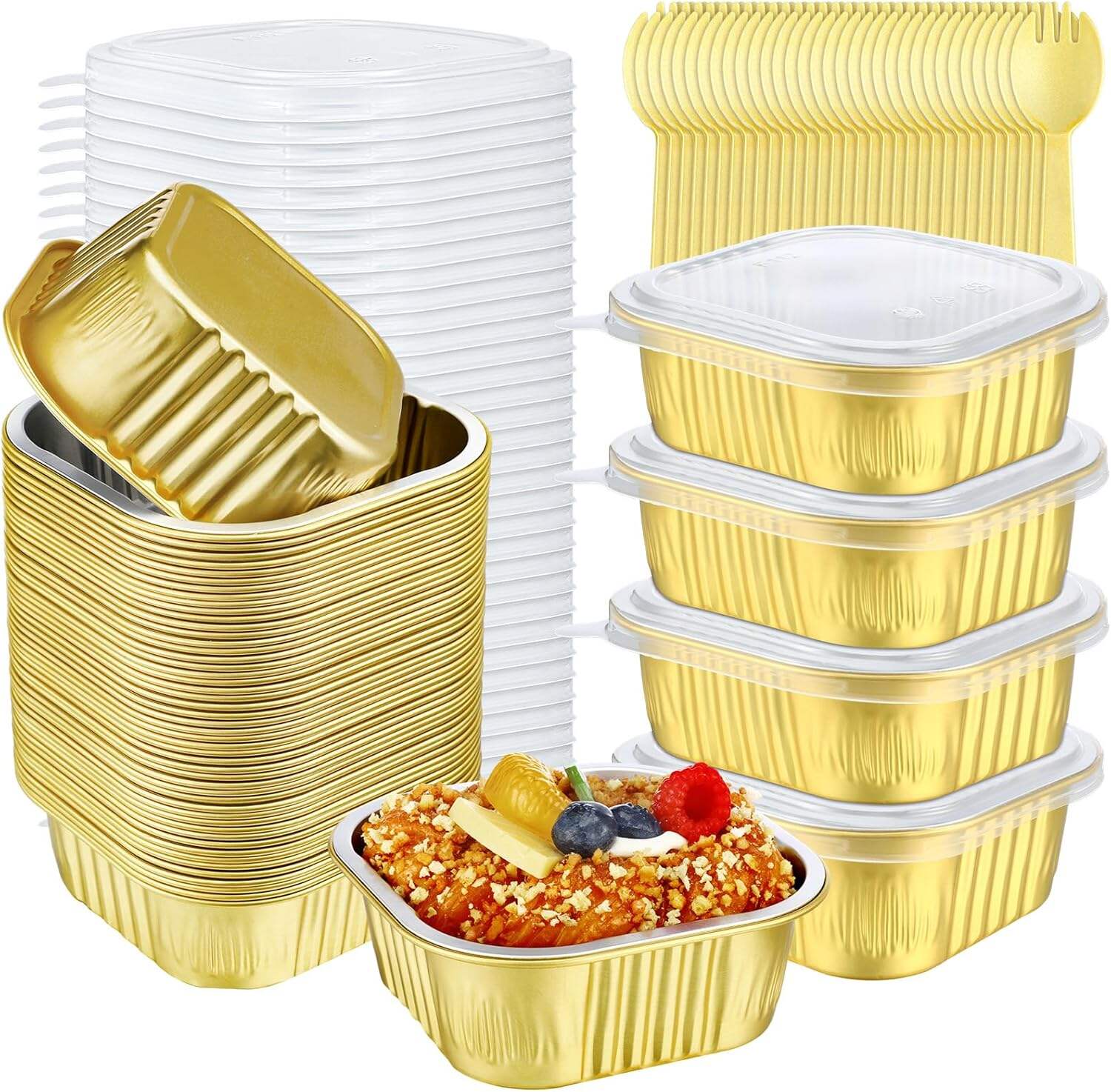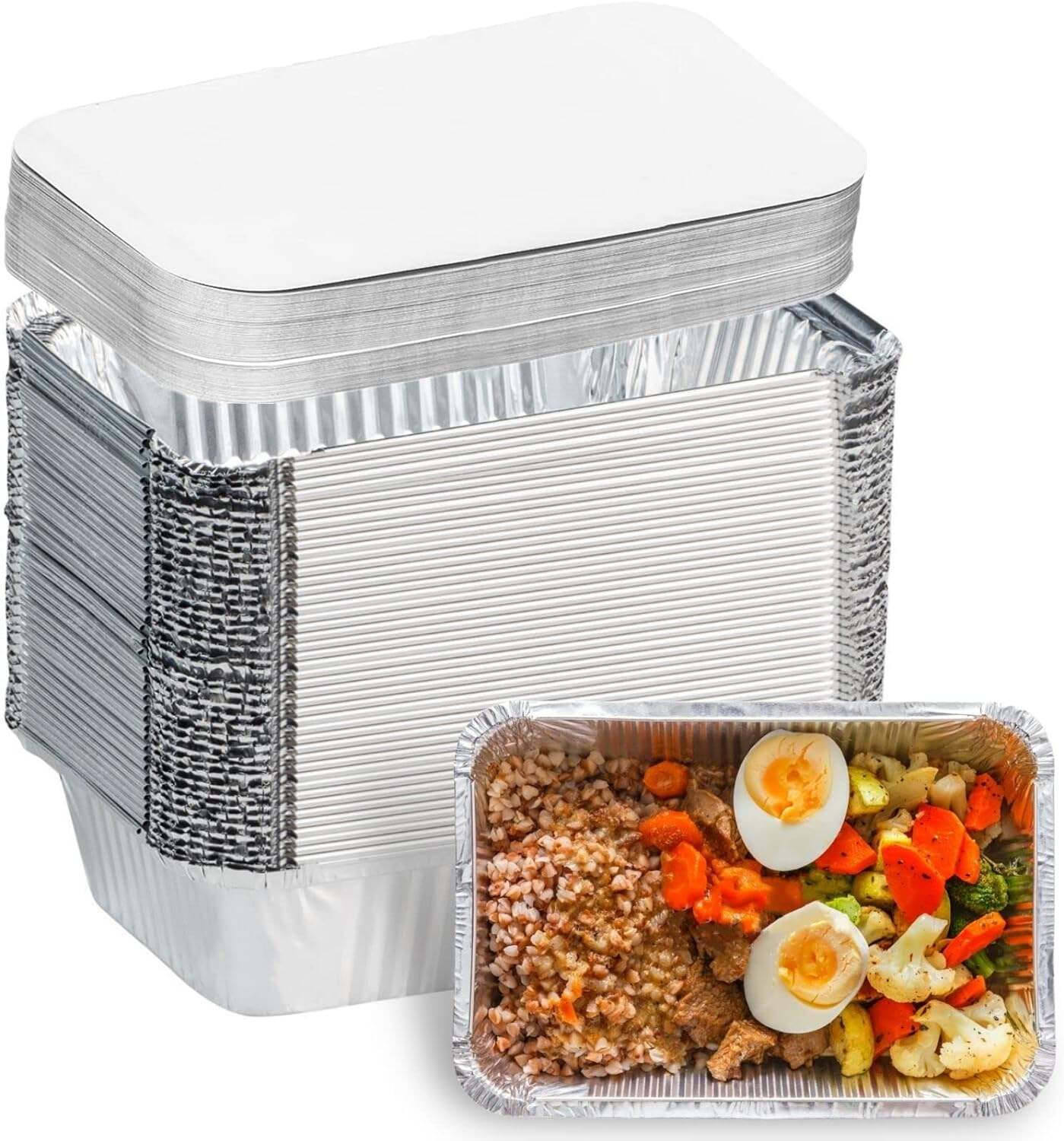The Evolution of Food Transportation Solutions
The global food supply chain has undergone remarkable transformations over the decades, with aluminum containers emerging as the gold standard for transporting and delivering food products worldwide. These versatile vessels have revolutionized how we preserve, protect, and transport food items across continents, ensuring both quality and safety remain intact throughout the journey.
From farm to table, aluminum containers play a crucial role in maintaining food integrity, preventing contamination, and reducing waste. Their widespread adoption by major food manufacturers, distributors, and logistics companies speaks volumes about their superior performance in the demanding world of food transportation.
Superior Properties of Aluminum in Food Transport
Unmatched Temperature Control
Aluminum containers excel at temperature regulation, making them ideal for both hot and cold food transport. Their excellent thermal conductivity allows for rapid cooling and heating, while their ability to maintain consistent temperatures helps preserve food quality during long-distance shipping. This characteristic is particularly valuable when transporting temperature-sensitive items like dairy products, frozen meals, and fresh produce.
The material's natural properties create an effective barrier against external temperature fluctuations, reducing the energy required for refrigeration and heating systems. This not only ensures food safety but also contributes to more sustainable transportation practices.
Durability and Strength
Despite their lightweight nature, aluminum containers offer remarkable structural integrity. They can withstand the rigors of international shipping, including stacking, handling, and various weather conditions. The inherent strength of aluminum means these containers can protect their contents from physical damage while maintaining their shape and seal integrity.
The durability of aluminum containers translates to fewer replacements needed over time, making them a cost-effective choice for businesses involved in food transportation. Their resistance to impact and pressure changes during air transport further cements their position as the preferred option for global food delivery.

Environmental and Economic Benefits
Sustainability Advantages
In an era where environmental consciousness drives business decisions, aluminum containers stand out for their eco-friendly credentials. Their infinite recyclability without quality loss makes them a sustainable choice for food transport. When properly recycled, aluminum containers can be back in circulation within 60 days, significantly reducing the industry's environmental footprint.
The lightweight nature of aluminum containers also contributes to reduced fuel consumption during transportation, leading to lower carbon emissions across the supply chain. This combination of recyclability and efficiency makes them an environmentally responsible choice for global food distribution.
Cost-Effectiveness Over Time
While the initial investment in aluminum containers might be higher than some alternatives, their long-term economic benefits are substantial. Their durability means fewer replacements are needed, and their lightweight properties result in reduced shipping costs. The excellent preservation qualities of aluminum also minimize food waste, providing significant cost savings throughout the supply chain.
The reusability of aluminum containers further enhances their economic value, as they can be cleaned, sterilized, and redeployed multiple times before recycling. This extended lifecycle makes them a smart financial choice for businesses operating in the food transport sector.
Food Safety and Quality Assurance
Barrier Properties
Aluminum containers provide an exceptional barrier against external contaminants, including light, moisture, oxygen, and bacteria. This protection is crucial for maintaining food safety during long-distance transportation. The material's natural properties create an impermeable shield that helps prevent spoilage and extends shelf life.
The containers' ability to block UV rays is particularly important for preserving sensitive ingredients and maintaining nutritional value. This complete barrier protection ensures that food products reach their destination in optimal condition, meeting strict safety and quality standards.
Hygiene and Sanitization
The smooth, non-porous surface of aluminum containers makes them extremely easy to clean and sanitize. This characteristic is essential for maintaining hygiene standards in food transport. The material's resistance to corrosion and chemical reactions means it won't interact with food products or cleaning agents, ensuring consistent quality and safety.
Regular sanitization processes can be performed without compromising the container's integrity, making aluminum an ideal choice for businesses that prioritize food safety and regulatory compliance. The material's stability also prevents the transfer of unwanted flavors or odors to food products.
Innovation and Future Developments
Smart Packaging Integration
The food transport industry is witnessing exciting developments in smart packaging technology, with aluminum containers at the forefront of innovation. New designs incorporate temperature sensors, tracking devices, and freshness indicators, allowing real-time monitoring of food conditions during transit. These advancements enhance quality control and supply chain transparency.
The integration of IoT technology with aluminum containers enables better inventory management and provides valuable data for optimizing transport routes and conditions. This marriage of traditional materials with modern technology represents the future of food transportation.
Design Adaptations
Continuous improvements in aluminum container design focus on enhancing functionality while maintaining the material's core benefits. Innovations include improved sealing mechanisms, stackable designs for efficient storage, and modifications that facilitate easier handling and transportation. These developments are driving the evolution of food transport solutions.
Research into new aluminum alloys and manufacturing processes aims to further improve container performance while reducing material usage. These ongoing innovations ensure that aluminum containers remain at the cutting edge of food transportation technology.
Frequently Asked Questions
How do aluminum containers maintain food freshness during long-distance transport?
Aluminum containers preserve food freshness through their excellent barrier properties, protecting against light, moisture, and temperature fluctuations. Their superior thermal conductivity helps maintain consistent temperatures, while their impermeable nature prevents contamination and oxidation, ensuring food quality throughout the journey.
What makes aluminum containers more sustainable than other packaging options?
Aluminum containers are 100% recyclable indefinitely without quality loss, have a smaller carbon footprint due to their lightweight nature, and can be reused multiple times. Their durability reduces the need for frequent replacements, and their efficient temperature control properties help minimize energy consumption during transport.
How do aluminum containers contribute to cost savings in food transportation?
Despite higher initial costs, aluminum containers offer long-term savings through their durability, reusability, and lightweight properties that reduce fuel consumption. Their excellent preservation capabilities minimize food waste, while their recyclability provides value recovery at the end of their lifecycle. Additionally, their superior protection reduces product damage and associated costs.


